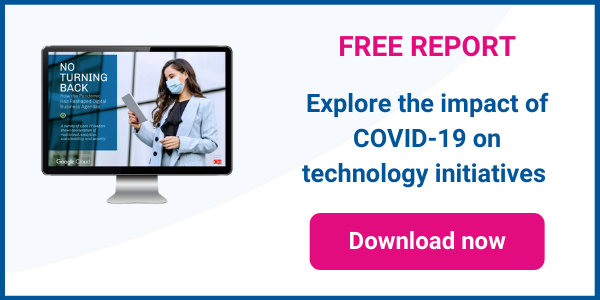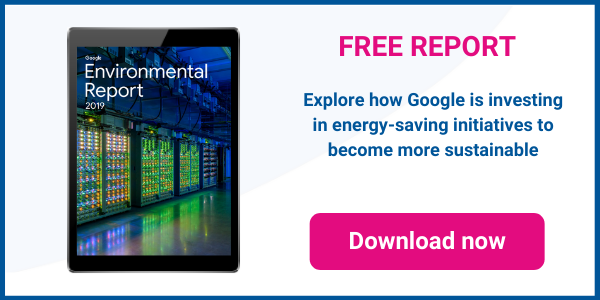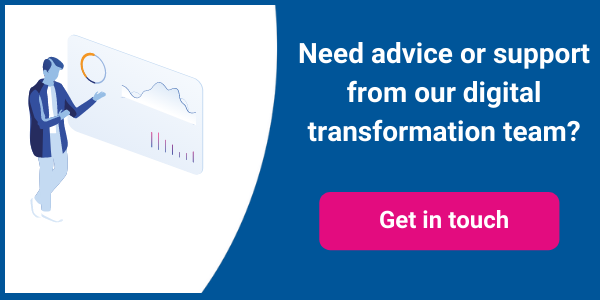IDG has recently released research, based on a survey of 2000 IT leaders across 14 countries, that lays bare the impact of the Covid 19 pandemic on future digital transformation strategies. It’ll be no surprise to learn that organisations further along in their digital transformation journey weathered the disruption better than average. As IDG notes, “a modern IT ecosystem can help organisations pivot more quickly to overcome business, market or even societal disruptions.”
The report goes on to identify four key areas for organisations to consider going forward. These will improve the resilience of your operations, whether you’re a digital leader or a digital laggard, help you respond to future disruptions more quickly and effectively, and increase your ability to innovate after the pandemic.
1. Multi-cloud/hybrid cloud adoption and management
Two thirds of the IT leaders surveyed by IDG are using multiple public clouds — and there’s a good reason for that. Although IT departments might prefer the simplicity of working with a single public cloud platform, vendor lock-in and over-dependency on a single supplier are as much of a concern as they were in the days of on-prem IT. Even if you’ve committed to a primary public cloud platform, IDG warns that you can’t ignore the innovation constantly occurring on other cloud platforms.
Adopting a multi-cloud strategy will mitigate some of the risks, by giving you the flexibility to choose the best combination of capabilities and cost from each cloud partner. That means your cloud strategy needs to address management, governance, security and integration needs in a multi-cloud environment.
The IT leaders surveyed by IDG recognise that imperative, placing multi-cloud/hybrid cloud support as their top “must have” when considering a cloud partner. They’re also embracing open source solutions — such as Kubernetes for containerisation — as a way to simplify integration across multiple clouds, with three quarters of them expressing a preference for their cloud provider to be committed to open source.
2. Data analysis and intelligence, including exploiting machine learning
Data and business analytics initiatives were already a priority for IT leaders before the pandemic, and the events of the last year have done nothing to change that. In fact, with supply chains, customer behaviour and working practices all in flux, it’s more important than ever for managers to be able to generate timely, actionable insights from the flood of data now available to them.
This focus is reflected in the IDG research, which found that strong data analytics capabilities are now one of top “must have” considerations when selecting a cloud provider. However, a shortage of skills and technical resources are preventing at least a third of organisations from exploiting advanced analytics technologies such as AI and machine learning. Like the IT leaders surveyed by IDG, you should be looking to cloud partners with both technology and service offerings as a way to overcome those issues.
3. IT sustainability — reducing your carbon footprint and your energy costs
The IDG survey found that sustainability is a priority or performance metric for 90% of IT departments. With the shift to more remote working and to serving a greater proportion of customers through digital platforms as a result of the pandemic, the “green” credentials of the IT department are under greater scrutiny than ever before.
In fact, the survey found more organisations are looking at the impact of their IT infrastructure and data centres on sustainability targets than are considering changes to their supply chain, products or facilities and building operations. While almost all organisations can make progress reducing the carbon footprint and energy consumption of their on-premise IT infrastructure, cloud providers are ahead of the game.
Google’s data centres, for example, can now deliver around 7 times as much computing power with the same amount of electrical power as 5 years ago. Google is also now matching 100% of its global energy consumption with purchase of energy from renewable sources. So shifting workloads to the cloud over the next few years will be an easy and quick win for the IT department when it comes to meeting sustainability goals.
4. Security enhancements and risk mitigation
Most IT leaders now consider cloud infrastructure to be at least as secure as on-premise systems. However, the pandemic has made them more aware of a number of existing security challenges that flow from pursuing a digital business agenda and three quarters of the IT leaders surveyed by IDG say they will alter the way their organisation evaluates risk for at least the next five years as a consequence.
In the early days of the pandemic, the main concern was to be able to protect against attacks designed to target remote and home-based workers. However, moving forward, IDG says, the main requirement for organisations will be the ability to use cloud services while retaining control over access to their own data. Being able to work with providers who offer appropriate compliance with industry-specific certifications will also be a key consideration. Above all, the IDG research suggests, you should be looking to develop a shared responsibility model with your cloud provider — with the cloud vendor providing transparency and visibility into their operations — in order to minimise security vulnerabilities across your entire infrastructure.
One final issue raised in the survey is that IT leaders in digitally mature organisations look to their cloud partners to provide them with strategic advice, not just technology. Two thirds of those surveyed said they wanted input from their cloud providers when shaping their organisation’s business objectives: helping them to understand what’s possible as well as providing expertise in identifying the right technologies, processes and skills to fulfil those objectives. So you should be looking for a cloud partner that understands not only how to run cloud services but how those services can help organisations like yours develop advanced, flexible and pervasive digital business processes.
Working with our digital transformation specialists
If you're involved in the busy day to day and your teams have been working with a process a certain way for years, it can be hard to step back to imagine doing it in a totally different way.
Got an idea to transform your business and want help bringing it to life? We’re all ears. We design, build and manage customised mobile and cloud apps to meet your specific needs – either alongside your team or for you. Our early prowess in mastering APIs led to Google itself becoming a customer and us building their Exam Platform. So not only do we know our onions but you can trust us to deliver innovation and edge in spades.
If you’d like to find out more about how we can help you with your own digital transformation journey, why not take a look at some of our customer success stories or browse our resources. Needless to say, please get in touch with our team if you'd like more practical support and guidance.




